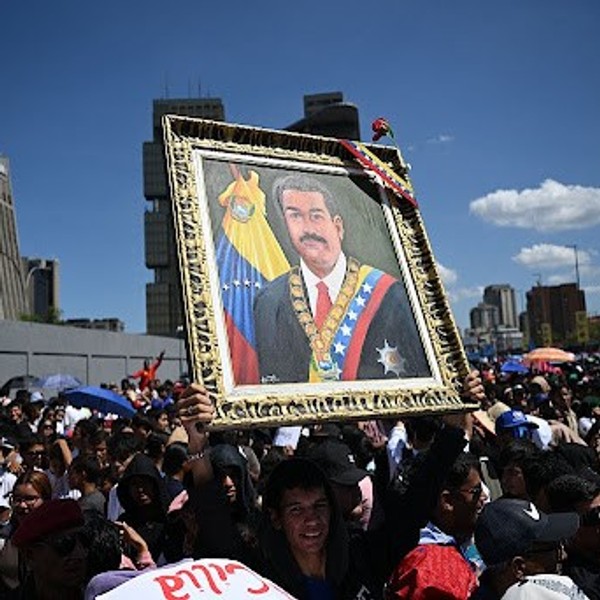Joint Chiefs Chairman Gen. Joseph Dunford retires later this month, but in his own quiet way he is leaving behind his recommendation for the current problem of when to reduce U.S. troop levels in Afghanistan.
It’s clear that President Trump still wants to cut American forces as contemplated in the now “dead” political settlement reached with the Taliban by Presidential envoy Zalmay Khalizad.
Under that plan, the current level of 14,000 U.S. troops was to drop by some 5,400 over a 135-day period during which time the Taliban were to cease fighting and break relations with al Qaeda. That would have left 8,600 Americans to train Afghan security forces to handle the continuing counterterrorist threat.
Back on August 20, while the Khalizad/Taliban negotiations were in their final phase, Trump told reporters he considered “ridiculous” any continuing U.S. military commitment to Afghanistan and that he had always favored a withdrawal of American forces.
“We’ve been a peacekeeper there, in a way, for 19 years and at a certain point you have to say, ‘That’s long enough,’” Trump told reporters.
After Trump called off the secretly planned Camp David meeting with the Taliban and Afghan President Ashraf Ghani, he announced his administration was still “looking at” troop reductions. “We’d like to get out, but we’ll get out at the right time,” Trump said.
Dunford set out his view of the Afghanistan problem during his September 5, appearance at the Council on Foreign Relations, while the plan for U.S. troop reductions and Taliban response were being finalized.
“The first thing I’d tell you is no advice I’ve provided is founded on trust of the Taliban,” Dunford said. He added that he also did not assume “the Taliban can protect us from the other over twenty extremist groups in South Asia.” That would include al Qaeda in Afghanistan, which was part of the Khalizad plan.
For Dunford, the prime benefit of Khalizad’s plan was that it was going to end the violence associated with the Taliban’s insurgency in Afghanistan.
“If the level of violence in the insurgency can be reduced, the Afghan National Defense Security forces, and those [in the] coalition allied with U.S. forces that are in Afghanistan, can be more focused on the terrorist threat than on the insurgency,” he said.
Dunford had his doubts, as indicated above, that the Taliban could be trusted to deal with the Afghan government. “A negotiation could result in intra-Afghan dialogue and potentially some good could come out of that in the future,” he said.
Even before Trump ended the negotiations, Dunford saw the proposed agreement providing only “relatively modest” gains and said “we will see the status quo for some period of time to come.”
In short, Dunford was saying that with the Taliban insurgency continuing, he would not recommend any U.S. troop reductions take place, because just 8,600 American troops in Afghanistan would not provide enough to also deal with the terrorist threat in the region.
Dunford described that the detained - thousands of foreign terrorist fighters, and millions of refugees and displaced persons in Syria and Turkey - represent another strategic problem for the U.S. and its allies. “Overall ten thousand individuals…are in detention just by the Syrian Democratic Forces [and] that doesn’t count the numbers that are being held by the regime and regime-backed forces,” Dunford said.
He cited 2.3 million refugees inside Turkey and millions of internally displaced persons inside Syria including some 70,000 at the al-Hol camp who are believed to have come from what was former ISIS-run territory.
“In my view,” Dunford said, “the international community, if we don’t get this right, if we don’t address the refugee problem, if we don’t address the internally displaced person problem…I describe it as a petri dish for future extremism in these camps and in these detention facilities.”
“Addressing these people, to include the detainees, is, in my view, a critical strategic issue,” Dunford added.
For Dunford, Russia remains a major threat. When asked about extending the Strategic Arms Reduction Treaty (START) that expires in February 2021, Dunford said, “I would be in favor of extending the agreement, provided all parties were going to comply with the agreement.”
He said Russia’s violation of the Intermediate-Range Nuclear Forces (INF) Treaty required U.S. negotiators to “revisit compliance issues with regard to START before we move forward.”
“I’m suggesting that the Russians haven’t complied with one treaty. We would have to be satisfied that we addressed that issue, and also compliance with any extension of the other treaty,” he said.
Read more national security news, insights and analysis in The Cipher Brief.















